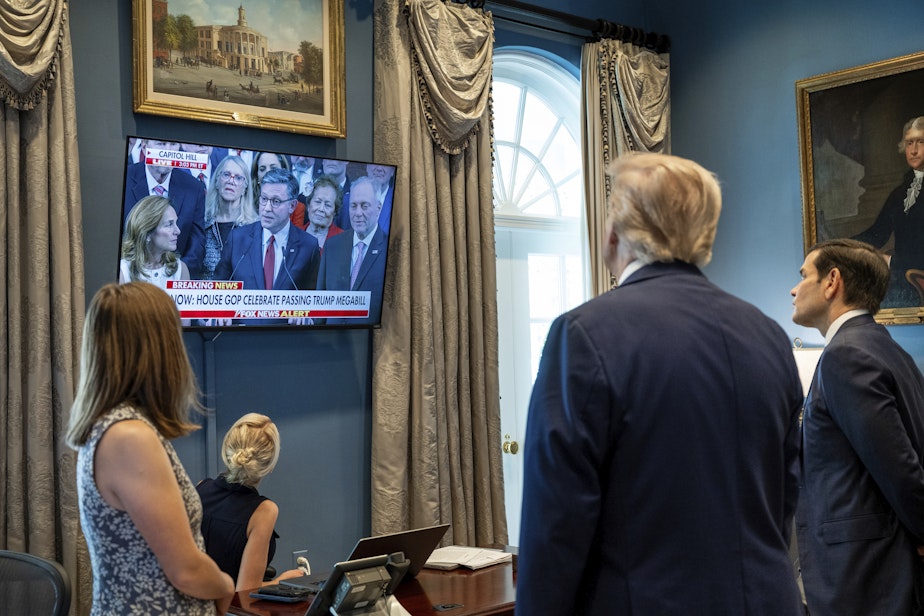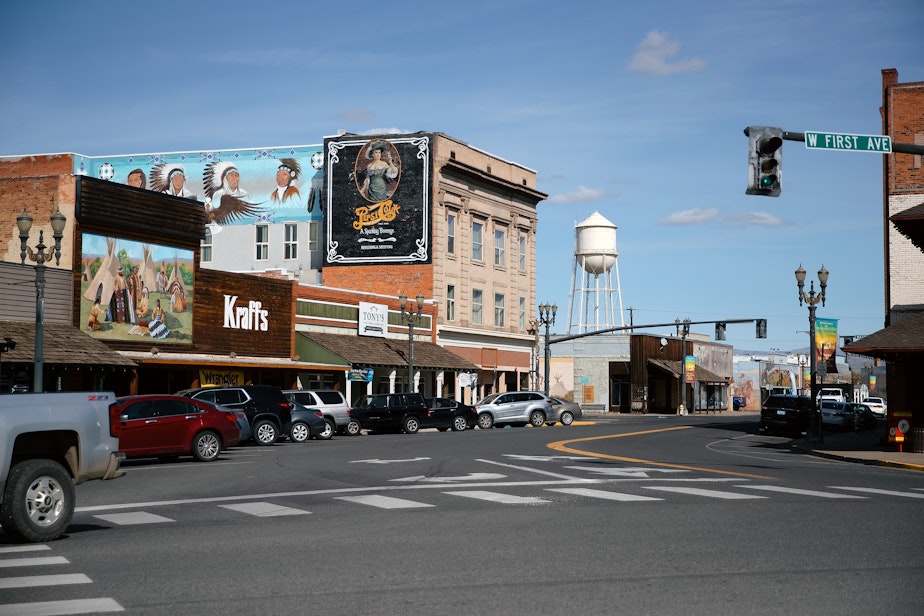Trump cuts could leave 250,000 Washingtonians without health coverage, shutter rural hospitals

State leaders and hospital officials say the so-called "Big Beautiful Bill" signed into law earlier this month by President Donald Trump could impact the access of hundreds of thousands of Washington residents to health care, especially in rural parts of the state.
"On so many levels, it’s just possibly the worst piece of legislation I’ve seen in 20 years in politics," Gov. Bob Ferguson told KUOW’s “Soundside.” "As a state, it’s going to be a challenge for us."
Last week, Ferguson pledged to provide millions of dollars in additional funding to Planned Parenthood, if necessary. Trump’s new policy includes a one-year moratorium on Medicaid funding for Planned Parenthood. A judge has temporarily frozen that moratorium for now.
In total, the Trump spending package will slash around $1 trillion from Medicaid over the next decade, which Ferguson said could lead to the loss of services or complete closure of dozens of rural hospitals across Washington state.
“We do not have billions of dollars lying around to backfill these cuts, so it’s going to do a lot of harm to Washingtonians,” he said.
Sponsored
RELATED: Why the health care lobby failed to stop cuts to Medicaid funding
Ferguson’s assessment was echoed by Jacqueline Barton True, vice president of advocacy and rural health for the Washington State Hospital Association.
She said state hospitals will see a reduction of $6.2 billion in direct payments over the next 10 years. In addition, 250,000 Washingtonians are expected to lose their health coverage from changes to Medicaid requirements.
“That's not only a huge impact on those patients individually, but that has a big impact on the back end financially for hospitals as well,” Barton True said. “Because now those folks, just because they lost coverage, they're still going to have heart attacks, they're still going to get in car accidents, they're still going to need hospital care.”
She said a hospital’s legal requirement and mission is to “provide care to whoever comes through our doors.” So, when more people are uninsured and Medicaid pays for fewer services, it stresses hospitals, especially in rural areas.
Sponsored
Barton True said all Washingtonians, not just those on Medicaid, will eventually feel the impact of Trump’s cuts.
“At some point, services will have to be curtailed,” she said. “That might mean longer wait times. It might mean traveling farther to reach specialists. It might, in the worst-case scenario, unfortunately, mean closed hospitals, particularly in our rural areas, which will really devastate those communities.”

One of the hospitals facing potentially dire consequences is Astria Toppenish Hospital in central Washington southeast of Yakima, the state’s only hospital located on reservation land.
“We serve the Yakama Nation tribal members,” said Administrator Cathy Bambrick. “We also serve migrant farmworkers who live and work in the area, and we also serve the surrounding communities.”
Sponsored
Bambrick said Astria Toppenish has the second highest Medicaid rates in Washington state, with about 72% of the hospital’s patients either on Medicaid or Medicare.
The hospital was already in a drawn-out fight to be designated a “critical access hospital” so it could get full Medicaid and Medicare reimbursement. Right now, the hospital gets 70% of those costs reimbursed.
Astria Toppenish has also been expanding its behavioral health services to help balance its books.
“We had a path to financial viability by the end of 2026,” Bambrick said. “With the passing of the Big, Beautiful Bill, that opportunity is gone.”
RELATED: What the 'One Big Beautiful Bill' will change for students, schools and colleges
Sponsored
Bambrick said she and her colleagues were still in shock that Trump’s policy bill passed into law, but they are determined to keep fighting.
She said she has hope for the Rural Health Transformation Program, part of the massive new policy bill that provides small, rural hospitals with $10 billion a year, far less than the $100 billion cut by Trump's new law.
“It’s like they took $1 from us and they gave us back 10 cents,” she said. “I’m grateful. I’m never going to say I’m ungrateful for the funds. But what we really need is a fix to health care, the whole health care system. We have to have a fundamental belief that Americans all deserve health care. That’s the fundamental right of being an American, and I just don’t think that we agree on that.”






